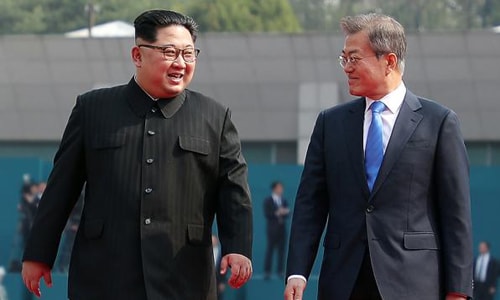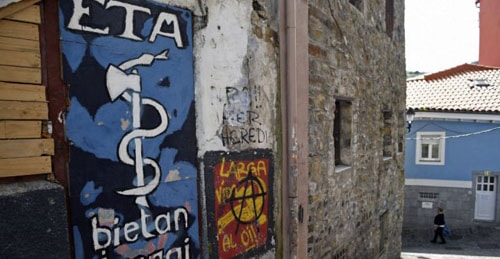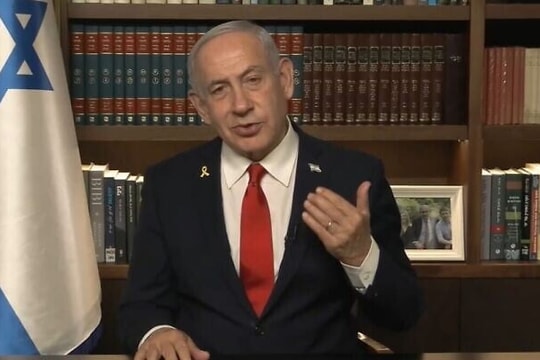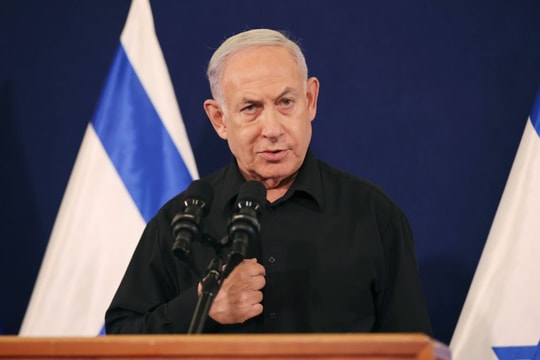The world and the series of outstanding events last week
(Baonghean.vn) - Countries marching to celebrate International Labor Day, the first steps of North Korea and South Korea in resuming peace between the two countries, the failure of US-China trade negotiations, the Israel-Palestine conflict in the Gaza Strip,... are the prominent issues of the past week.
1. International Workers' Day protests turn violent
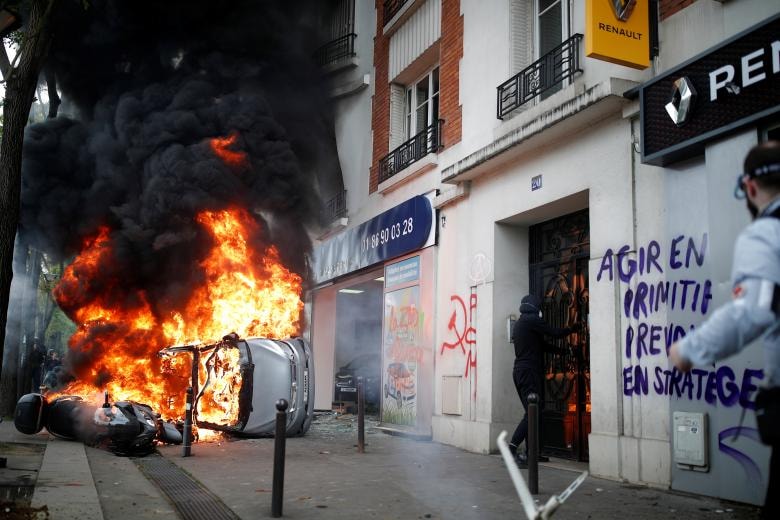 |
A car is burned outside a shop in Paris during a May Day protest. Photo:Reuters |
While workers in many countries around the world held rallies to celebrate International Workers' Day on May 1 with many solemn, large-scale activities, in some places, the protests turned violent by extremists.
In France, hundreds of people vandalized shops, set cars on fire and threw rocks at riot police in Paris during a May Day protest against French President Emmanuel Macron's economic reforms. Police used tear gas and water cannons to disperse the crowd. More than 200 protesters were arrested and four people suffered minor injuries.
Conflicts between protesters and police also took place in several countries such as Türkiye, Poland, Puerto Rico...
2. Practical steps after the historic North Korea-South Korea summit
|
North Korean leader Kim Jong-un (left) and South Korean President Moon Jae-in during a meeting on April 27. Photo:AFP. |
North Korea and South Korea on May 1 jointly dismantled propaganda loudspeakers installed along their border. This is the latest step towards reconciliation between the two countries, following the historic summit between North Korean leader Kim Jong-un and South Korean President Moon Jae-in on April 27.
North Korea has also begun dismantling its Punggye-ri nuclear test site by removing support systems in the tunnels. The removal of cables from the tunnels at Punggye-ri is believed to be the beginning of the process of decommissioning the only nuclear test site in North Korea. Mr. Kim announced that he would invite experts and journalists from the US and South Korea to the country to witness and ensure "transparency" when closing the nuclear test site.
On May 5, the North Korean state news agency (KCNA)The country announced that it would move its clock forward 30 minutes to match South Korea's time zone.
On the same day, four South Korean ministers, including Defense Minister Song Young-moo, Foreign Minister Kang Kyung-wha, Unification Minister Cho Myoung-gyon and Oceans Minister Kim Young-choon, visited Yeonpyeong and Baengnyeong islands on South Korea's western border to collect public opinions on the agreement to establish a maritime peace zone.
3. Trade negotiations between the US and China
|
| The US delegation, including Treasury Secretary Steven Mnuchin and Commerce Secretary Wilbur Ross, did not make any statements after the negotiations. Photo:Getty. |
On May 5, a high-level US trade delegation and Chinese officials concluded two days of work to resolve the trade deficit between the world's two leading economies. The negotiations did not reach any agreement and the two sides did not arrange a time for the next working session.
The talks will be the highest-level meeting between the two countries since President Trump announced tariffs on $50 billion worth of Chinese imports in early April.
This is considered a move to punish China for its unfair treatment in promoting the development of high-tech industries. Specifically, Mr. Trump accused Beijing of violating intellectual property rights and forcing the US to transfer advanced technologies.
Beijing quickly retaliated by imposing tariffs on $50 billion worth of US goods, including cars, aircraft, and some agricultural products. President Trump then threatened to impose tariffs on an additional $100 billion worth of Chinese goods.
4. IS carried out terrorist bombings in many countries
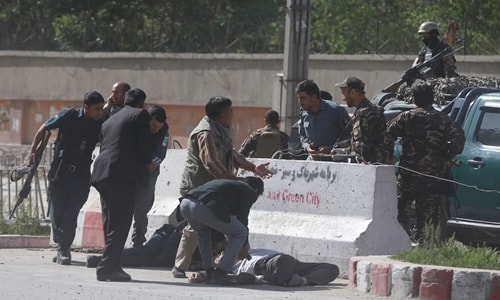 |
Police help victims of double bombings in Kabul. Photo:Reuters. |
On April 30, in Kabul, Afghanistan, a suicide bomber drove a motorbike and blew himself up, and about 20 minutes later, another bomber walked into a crowd of journalists covering the event and also blew himself up. Twenty-nine people were killed, nine of them journalists. This was the deadliest attack on media workers in Afghanistan since 2001.
On May 2, a group of rebels attacked the office of the Libyan Election Commission in the capital Tripoli, and clashes broke out between the attackers and security forces before a suicide bomber detonated an explosive device inside the commission, killing 14 people. The self-proclaimed Islamic State (IS) terrorist organization claimed responsibility for the suicide bombing.
The Russian Federal Security Service (FSB) announced that it had just arrested at least five members of a terrorist group run by the self-proclaimed Islamic State (IS) organization when these people were planning to carry out attacks in many areas across the country. These terrorists owned a large amount of weapons and homemade explosive devices. During the process of arresting the above subjects, the authorities discovered a warehouse containing homemade explosive devices, along with many weapons and ammunition.
5. The Israeli-Palestinian conflict in the Gaza Strip continues
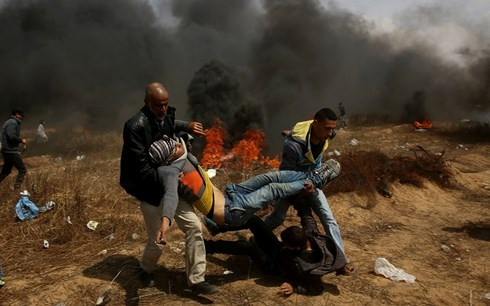 |
| Violent protests in the Gaza Strip. Photo: AP |
Palestinian protests entered their sixth consecutive week against Israel's occupation and the US decision to move its embassy from Tel Aviv to Jerusalem, scheduled for May 15.
Hundreds of Palestinians were injured by tear gas during a march in the Gaza Strip on the occasion of the "Palestinian Workers' Day" on May 3. The Palestinian Ministry of Health said that the total number of injured people reached 431, including 69 who were shot and the rest were suffocated by tear gas when Israeli forces attacked the peaceful march on the eastern side of the Gaza Strip border.
Clashes broke out on the afternoon of May 4, just after Friday prayers ended. Israeli soldiers fired tear gas and live ammunition at hundreds of Palestinian protesters to prevent them from advancing towards the border fence between the Eastern Gaza Strip and Israel.
This protest is part of the anti-Israel march campaign that Palestinians call the "Great March of Return", which started on March 30 and culminated on May 15, the day 70 years ago that Israel declared independence while Palestinians call it Nakba Day.
6. The Basque separatist organization ETA is completely dissolved.
The logo of the Basque separatist organization in the village of Bermeo, northern Spain, in 2017. Photo: AFP |
The Basque separatist group ETA has announced its complete dissolution, ending its four-decade-long armed campaign for independence for the Basque Country, a region in northern Spain and southwestern France. ETA said it had completely dissolved all of its divisions.
ETA was founded in 1959 by General Francisco Franco to fight for the independence of the Basque Country. To achieve this goal, ETA carried out many bloody acts of violence, claiming the lives of at least 829 people. In 2011, ETA agreed to end its hostile activities against the Spanish and French governments but did not agree to disarm.
In early April, ETA completed its disarmament process. On April 20, ETA publicly admitted its mistakes for the first time and asked for forgiveness for the suffering caused by its campaign for independence.

